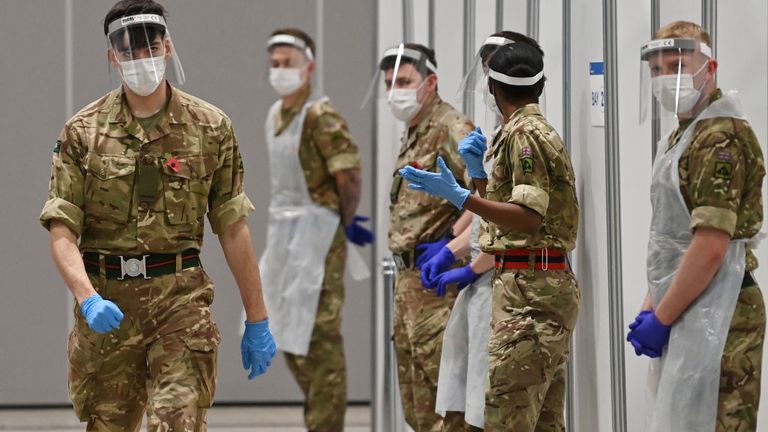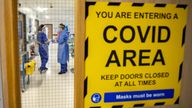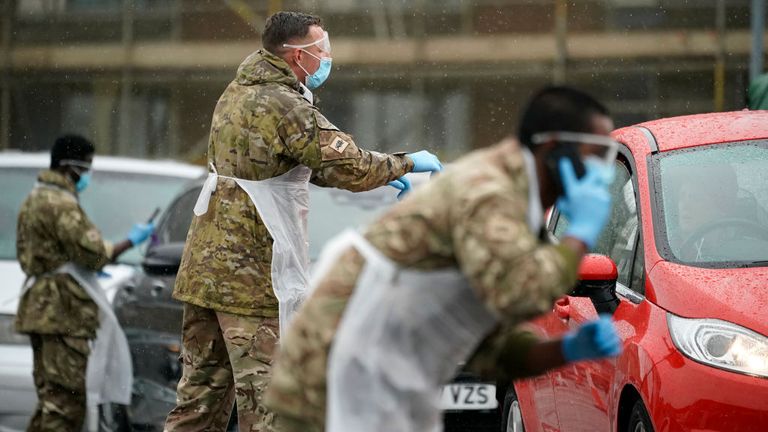COVID-19: More military personnel to join fight against coronavirus pandemic
The number of personnel helping the fight against the virus will soon be more than at any point during the pandemic.
Monday 4 January 2021 07:27, UK
Hundreds of extra military personnel are being deployed across the UK to tackle COVID-19, in the biggest homeland operation the UK has ever seen in peacetime.
It will take the number of armed forces working in the fight against the pandemic, codenamed Operation Rescript, to over 5,000 - more than at any point during the pandemic.
Almost 1,500 are being sent to support testing sites across the country, including an extra 800 in Greater Manchester, 390 in Kent and 130 in Swadlincote, Derbyshire.
"The new year will see new levels of armed forces support to overcoming this pandemic," said Defence Secretary Ben Wallace.
"Manchester is the latest of those tasks and will be an important contribution to protecting the highest risk groups as the city seeks to recover.
"As a North West MP, I am acutely aware of the considerable time many of us have been labouring under some form of lockdown and I hope our soldiers will help us get to the day when these restrictions will start to lift."
In addition to community testing, the military is still testing hauliers in Dover and will help establish 10 new testing sites to improve the flow of traffic across the Channel.
Some 1,500 personnel have been provided to support schools testing, including virtual support and phone advice.
Personnel are also on standby to deploy at short notice to provide in-person support.
Testing will continue as planned with two rapid lateral flow tests available to all secondary school and college students and staff at the start of term to identify asymptomatic cases, break chains of transmission and beat the virus.
And training is beginning today for a Vaccine Quick Reaction Force which is set to launch on 11 January. This will initially be 21 teams of six military personnel assigned to the seven NHS England regions - it's hoped they will be able to provide surge support to the vaccine rollout if needed by local health authorities.





